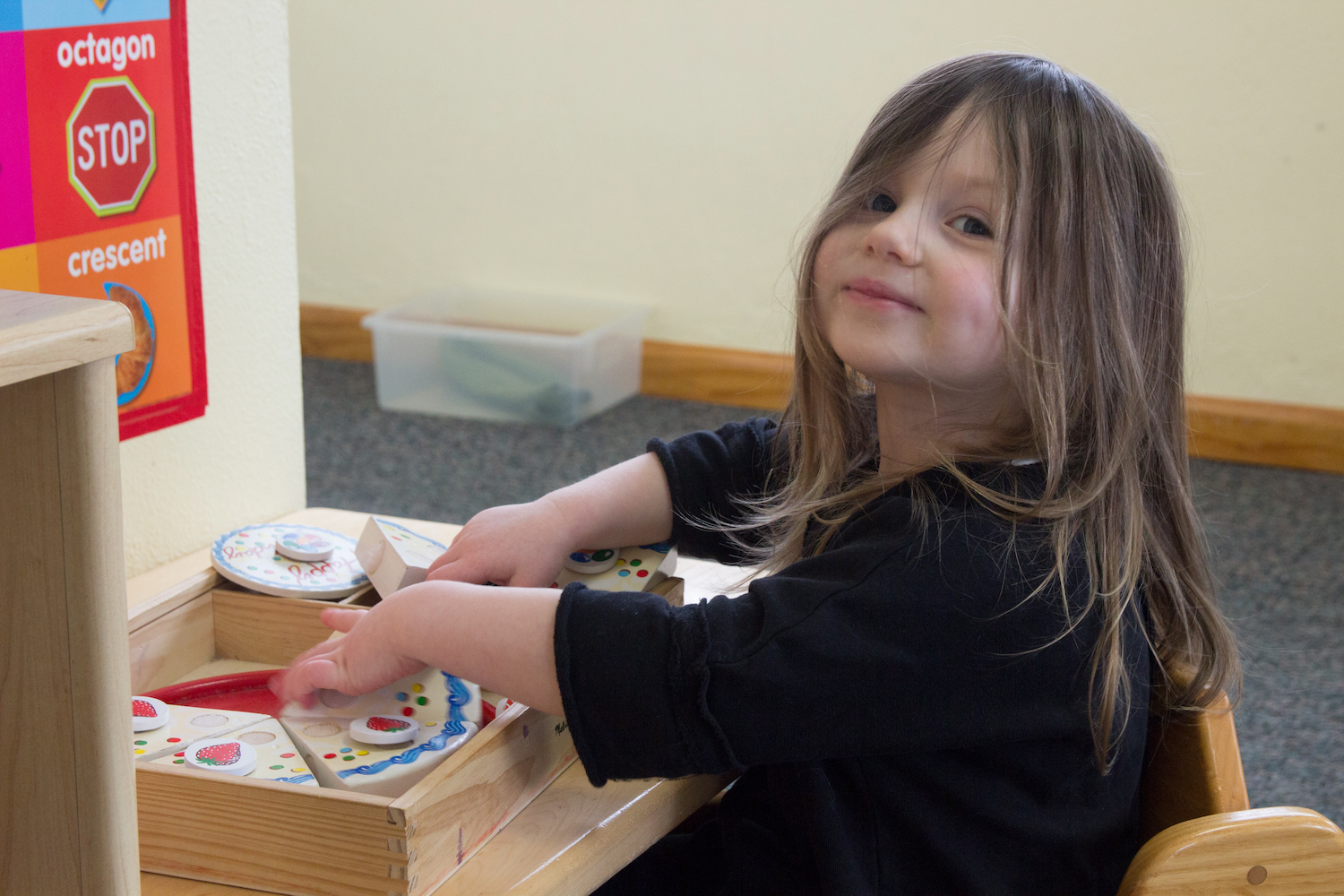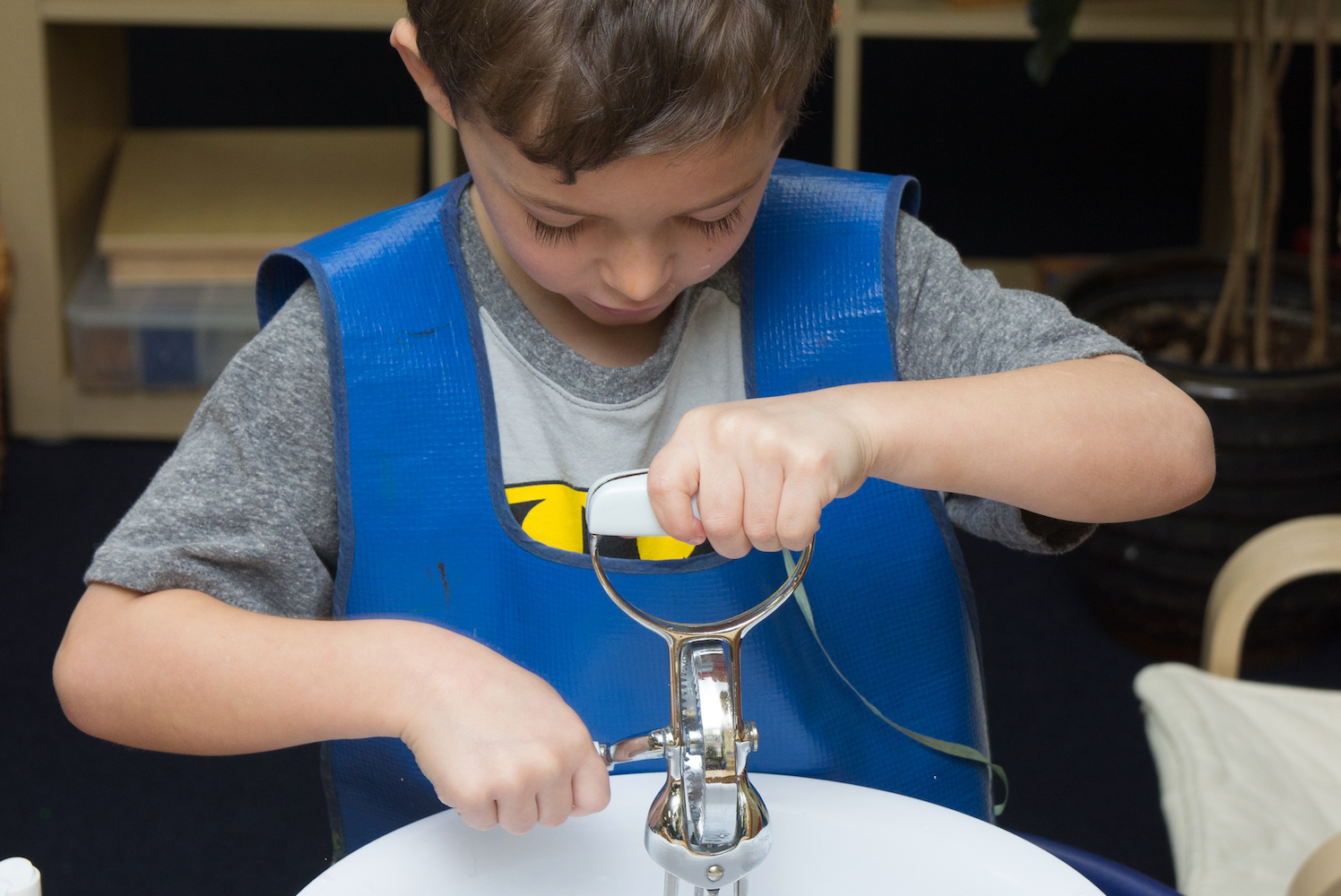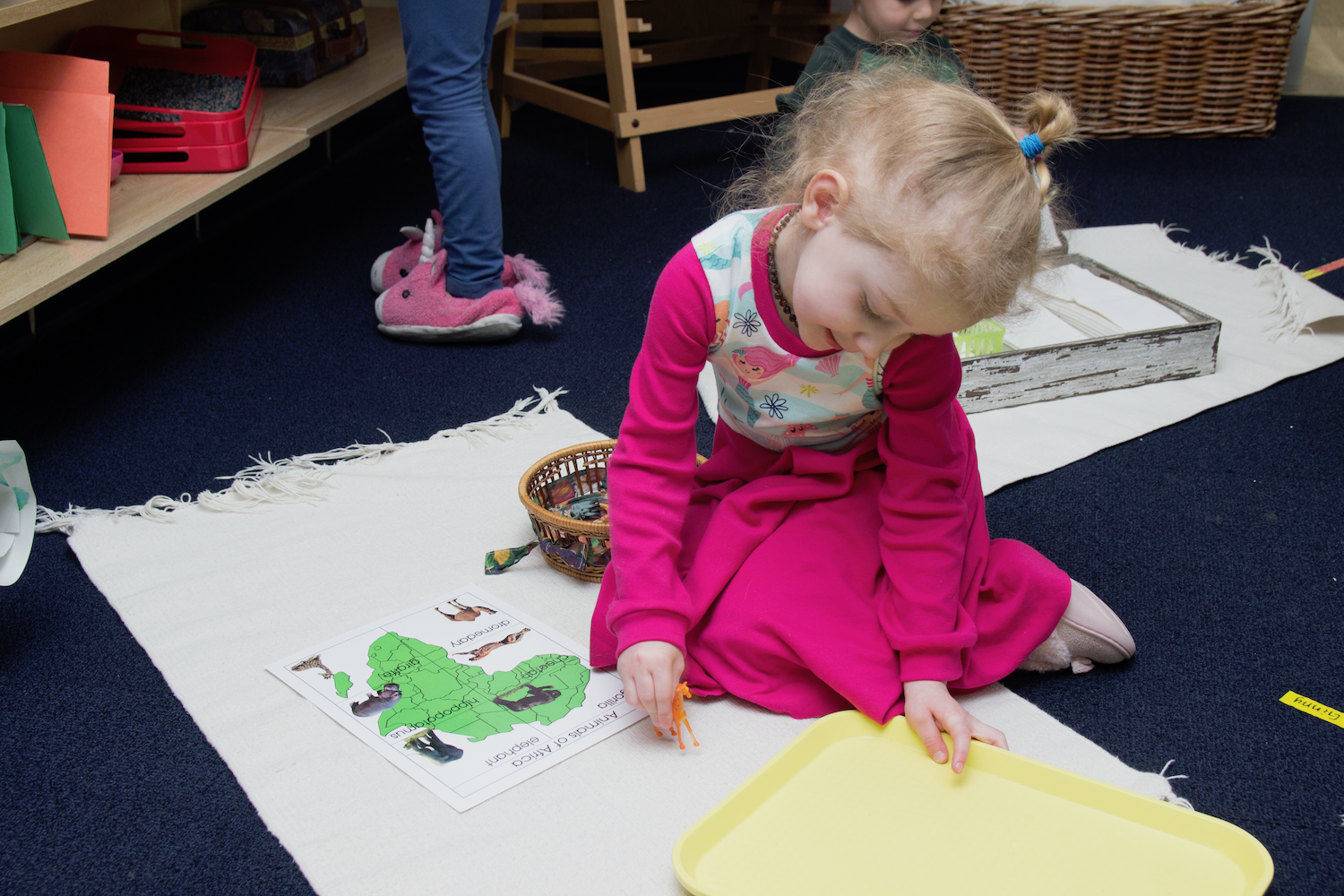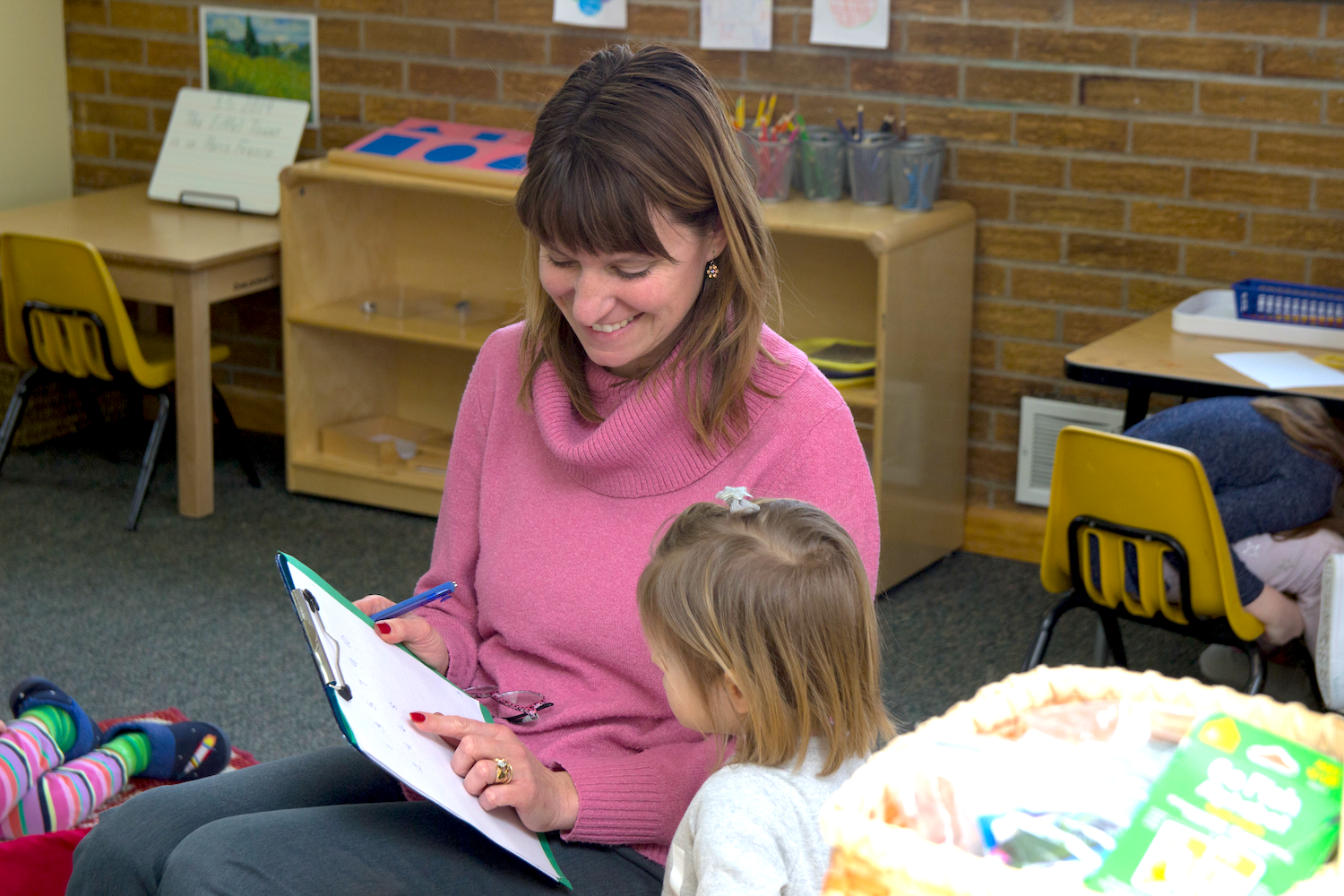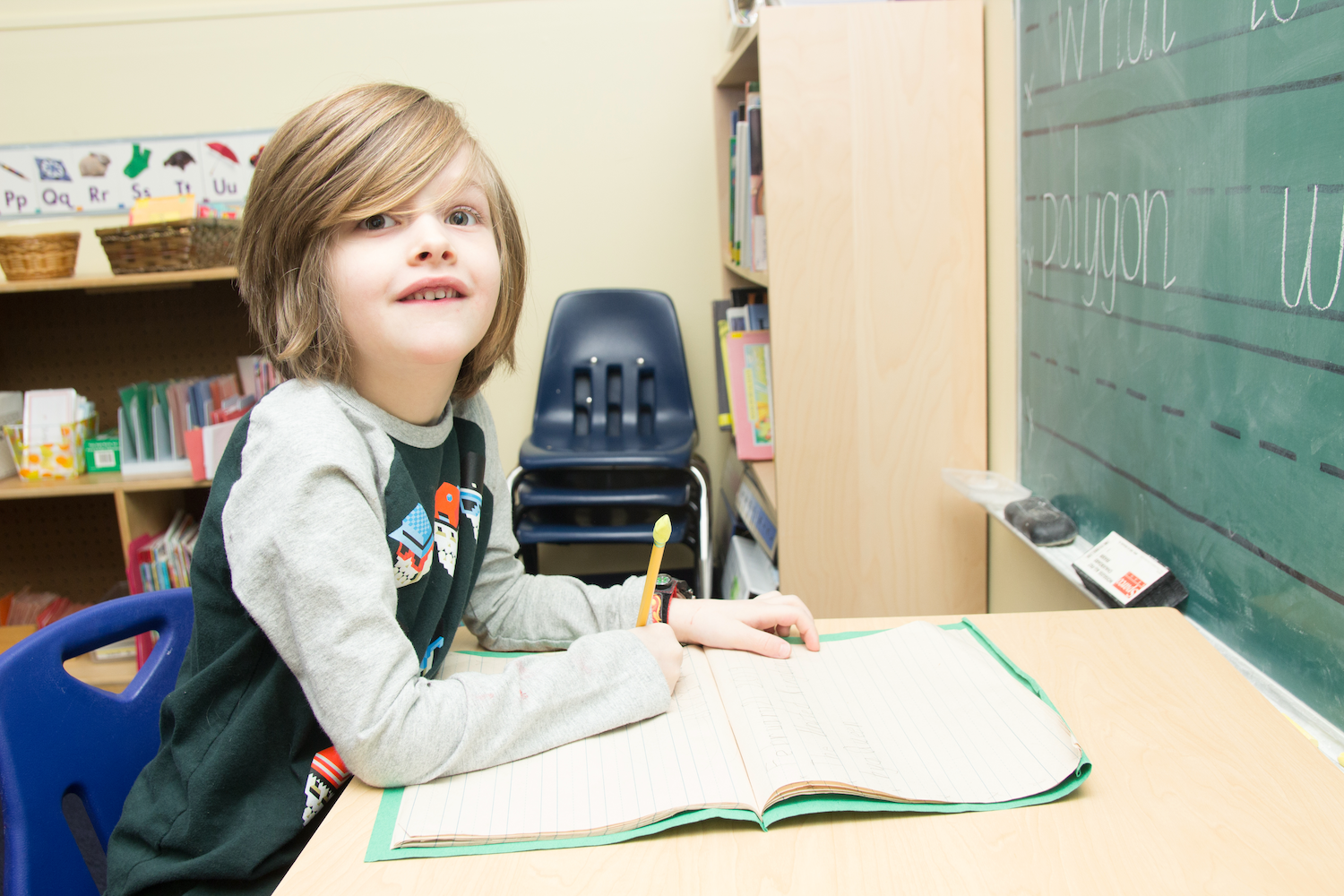Montessori Philosophy
Maria Montessori was described from a very early age as having a powerful character with a strong sense of duty and an assertive nature. True to her convictions, Maria Montessori went on to graduate from medical school and become the first female physician in Italy’s history. As a female, Dr. Montessori was not permitted to practice medicine in Italy’s hospitals, so she opened the very first casa de bambini or “children’s house” in a poor quarter of the San Lorenzo tenements. It was there that she began to develop what would later become known as the Montessori approach to the education of young children. The Montessori Method, based on careful observation of and respect for the natural development of the child, has become widely practiced in schools around the world for over a century.
“The hands,” wrote Dr. Maria Montessori, “are the instruments of man’s intelligence.” From two to six years of age, children are in the period that she referred to as the Absorbent Mind. During this time, children form their personality and self. Mind, memory, power to understand, and ability to think through impressions gained from the environment are all constructed during this time. “A child’s work,” wrote Maria Montessori, “is to create the man he will become. An adult works to perfect the environment, but a child works to perfect himself.”
Dr. Montessori recognized that a child is more responsive to certain learning experiences at particular times or “sensitive periods.” During these episodes, learning is most easily absorbed, concentration most intense, and enthusiasm is at its richest. Children pursue, with endless repetition, activities which are of interest to them. Dr. Montessori identified Sensitive Periods for language acquisition, order, detail, sensorial exploration, writing, words, numbers, manners/courtesy, and precise movement. Careful observation allows the Montessori-trained teacher to identify these sensitive periods when a child is ready for a new learning experience. The teacher can then direct the child toward materials that will satisfy his/her development needs. “It is true we cannot make a genius,” Dr. Montessori wrote, “We can only give each individual the chance to fulfill his potential to become an independent, secure and balanced human being.”
The Montessori classroom is designed to meet the individual needs of each child. By the time children have reached pre-school age, their actions have become purposeful and willful, and their focus turns to their peers and the new community of which they are now a member.
FAST MONTESSORI FACTS
Montessori education was established in 1907.
There are over 4500 Montessori Schools in the USA, both public and private.
Montessori programs range from birth through High School.
Each classroom has a 3 year age span. Your child will remain with the same teacher for 3 years.
True Montessori programs have certified Montessori Teachers and a full compliment of materials.
Common themes for Montessori classrooms are peace education, civic responsibility, and ownership of one’s education.
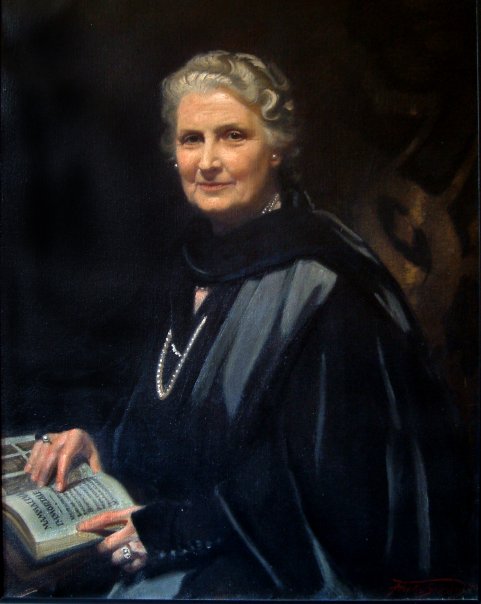
“We must help the child to act for himself, will for himself, think for himself; this is the art of those who aspire to serve the spirit.”
Education for a New World, Dr. Maria Montessori; 1946
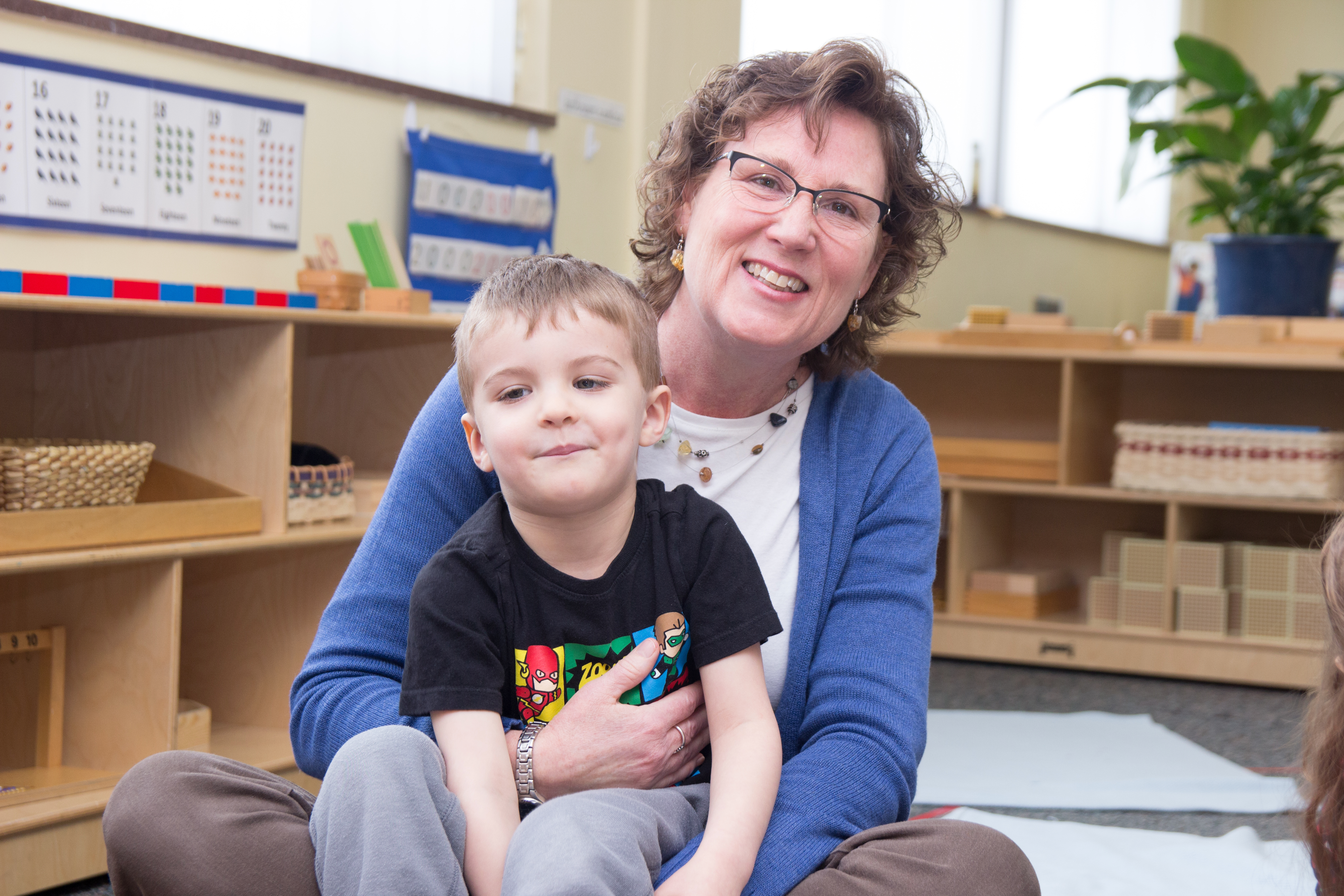
A MESSAGE FROM THE DIRECTOR
Emily Myers
I am privileged to have been part of the Ferndale Montessori Center since 1999. I believe our strongest asset is our consistent message to the children, layered with a tone of respect. Helping children reveal themselves is a gift and sharing this journey with families is our mission.


